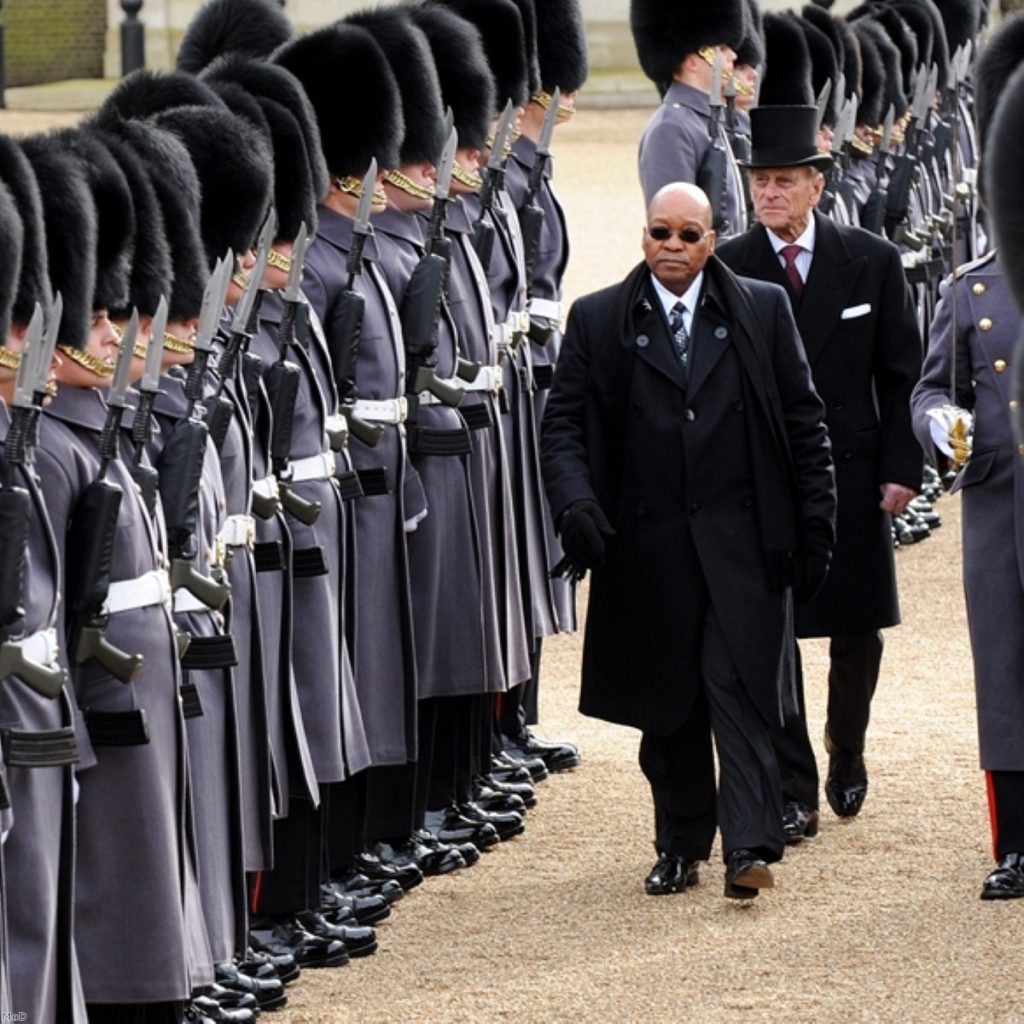Zimbabwe tensions overshadow Zuma visit
South African president Jacob Zuma has failed to persuade Gordon Brown to lighten sanctions on Zimbabwe on his state visit to Britain.
Mr Zuma hit back by refusing to withdraw previous comments about Britain’s “colonial” attitude to his polygamous lifestyle.
The pair addressed journalists in Downing Street after meeting for breakfast talks, as Mr Zuma’s three-day state visit as a guest of the Queen drew to a close.


After reaching agreement on climate change, nuclear non-proliferation and the importance of the World Cup in reducing poverty in South Africa, the two leaders struggled to find consensus on the EU’s sanctions against Zimbabwe.
Mr Zuma, along with other regional leaders, wants to persuade the EU to reduce the sanctions.
“We are agreed we should all put our heads together to put a solution to Zimbabwe,” he said.
But the British government remains steadfastly behind the sanctions, which it argues are targeted at individuals who are responsible for violence and businesses linked to them.
“We applaud the efforts of President Zuma to bring stability and change to Zimbabwe,” the prime minister said.
“We, however, must be absolutely sure that progress is being made… We must be moving from what is a unity and transitional government to free and fair elections. There can be no excuses for delay.”
Mr Zuma responded: “We are very positive that as we work harder we will certainly be able to make the position clear.
“There has been a greater understanding of what we are trying to do in Zimbabwe and we are moving closer.”
The South African president has received criticism from some sections of the British press for his polygamy. His third and newest wife accompanied him on his trip.
“Who gave authority to others to judge others?” he asked, before adding: “We’re not trying to condemn the British, or whatever.
“I’m sure you know that the colonial life by Africans has been viewed by Africans in a very particular way. I’m sure we’re making a comment in that particular way.”












